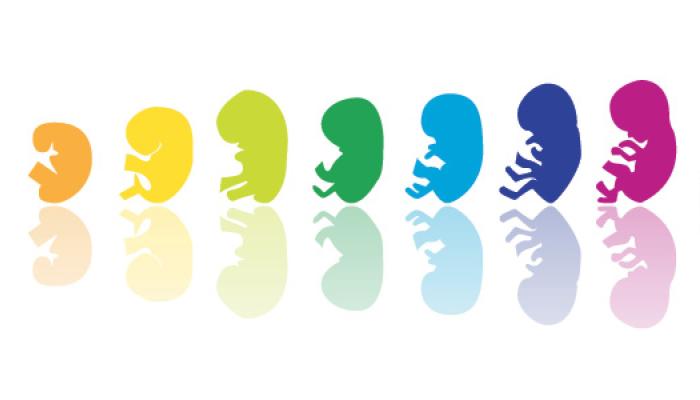
4.27 Is er een probleem met prenataal onderzoek?
Prenataal onderzoek vindt plaats voor de geboorte. Het doel ervan is om aangeboren aandoeningen en handicaps van het kind in de baarmoeder vast te stellen. Dat is belangrijk als het doel is om een eventuele medische behandeling te kunnen geven en het kind te genezen.
Het risico voor de foetus mag nooit buitensporig groot zijn: dit jonge leven heeft recht op alle bescherming die we het kunnen geven! Daarom is het heel erg verkeerd als het prenataal onderzoek bedoeld is om eventueel te kiezen voor een abortus.
Can a handicapped child be aborted?
No. Aborting a handicapped child is always a serious crime, even if it is done with the intention of sparing that person suffering later on. [Youcat 384]
Can experiments be performed on living embryos and embryonic stem cells?
No. Embryos are human beings, because human life begins with the fusion of a sperm cell and an egg.
Regarding embryos as biological material, “producing” them and then “using” their stem cells for purposes of research is absolutely immoral and falls under the commandment “You shall not kill.” Research on adult stem cells is a different matter, since they cannot develop into human beings. Medical interventions on an embryo are justifiable only if they are made with the intention of healing, if the life and unimpaired development of the child are assured, and if the risks involved are not disportionately great. [Youcat 385]
Special attention must be given to evaluating the morality of prenatal diagnostic techniques which enable the early detection of possible anomalies in the unborn child... When they do not involve disproportionate risks for the child and the mother, and are meant to make possible early therapy or even to favour a serene and informed acceptance of the child not yet born, these techniques are morally licit. But... it not infrequently happens that these techniques are used with a eugenic intention which accepts selective abortion in order to prevent the birth of children affected by various types of anomalies. Such an attitude is shameful and utterly reprehensible. [Pope John Paul II, Evangelium Vitae, 63]





